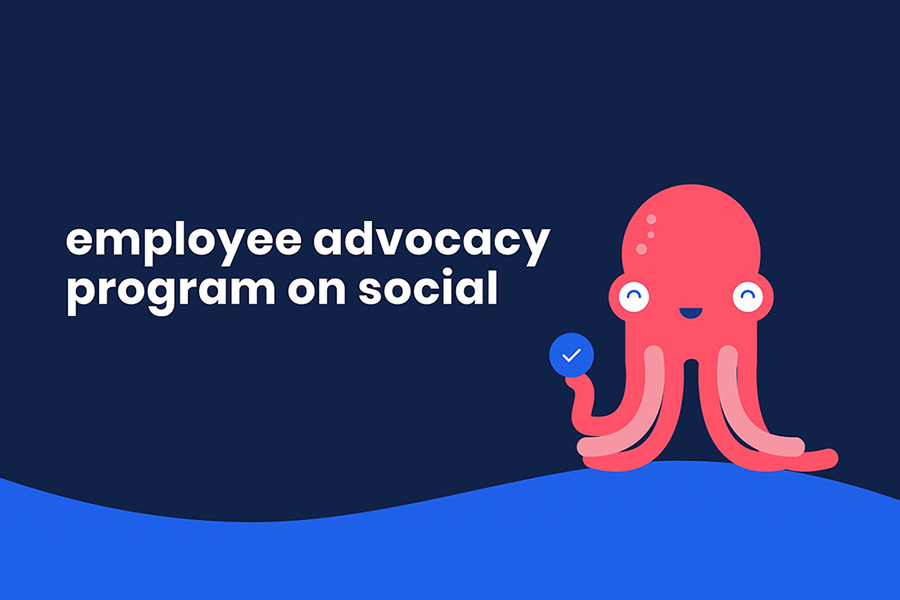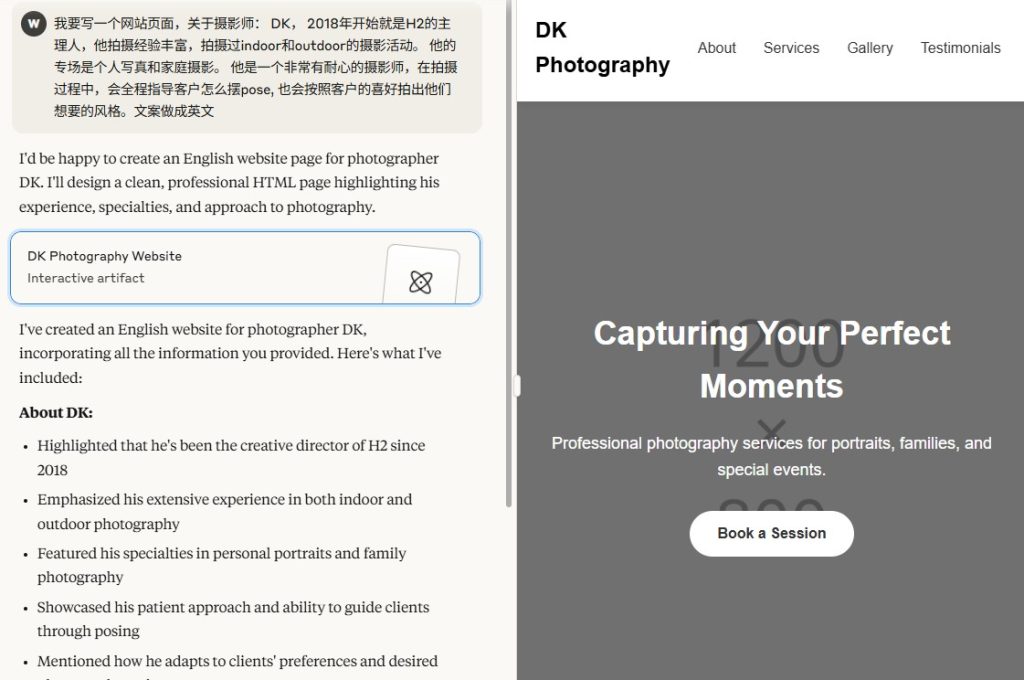“To win in the marketplace you must first win in the workplace.” – Doug Conant, CEO of Campbell’s Soup.
The above lines signify the importance of Employees in an Organization.
Employees are an important asset for every organization, and their potential to popularize your brand is immense. In an era where 67% of consumers no longer perceive CEOs as credible figures, employees are your best shot to amplify the exposure of your brand.
Let them be the voice of your brand, let them be the chorus of the message of your company.
Employee advocacy can help your brand reach heights. Employee advocacy can put your rivals to shame.
Curious to know more? Let’s cut to the chase and dive deeper.
What is Employee Advocacy?
Employee advocacy is a strategy that utilizes employees to promote and enhance the brand image of your company and win the trust of new and potential customers. While this can be done in many ways, the best tool out there is social media. A survey conducted by Weber Shandwick has found out that 98% of employees are active on at least one social media, and 50% of them are already posting about their company. Yes, that’s huge news!
But you might think – how is this different from using the company’s account for branding and promotional purposes?
If your employees on average have ten times more followers than the company’s account as pointed out by a LinkedIn study, and eight times more engagement than your brand’s official account, what better way is there to deliver your story and get people hooked up on your product?
There’s more to it. People find employees’ stories, posts, and recommendations about a brand on social media to be more compelling, authentic, and genuine than a company’s channel. They are more likely to buy a product based on recommendations from a person they trust.

(Source: Nielson)
Such is the growing popularity of employee advocacy using social media that companies are using services of professional digital marketing agencies to conduct workshops on how their employees can contribute better to employee advocacy using social media.
So, your employees have the potential to sell your brand better than any marketing strategy out there and the rewards of a successful employee advocacy program on social media are manifold.
The Benefits of Employee Advocacy
- Increased Social Presence
Hinge Research Institute and Social Media Today’s study highlights primary benefits to be increased brand visibility and enhanced brand recognition.
Your employees can make your brand appear more humanized and attractive by posting content about your company through their private profiles. They have access to a more extensive follower base than the company’s account. They are also better storytellers when it comes to delivering your brand’s message to people as their content reaches 561% further.
Source: (Hinge Research Institute and Social Media Today)
- Generates More Leads
You might have spent a lot of money on promoting your brand on social media through advertisements. But, the internet and social media may be flooded with such similar ads, and with the average attention span of users being only eight seconds, the tiniest distraction can lose a potential lead for you.
But, the real stories and suggestions coming from employees as ‘normal’ people can save your brand. They can make it look outstanding from the rest. Customers take employees’ words because they hear it from an insider of your organization. The study by Marketing Advisory Network has found out that leads generated through employee advocacy on social media have the potential to convert to sales 7X more than other leads.
- Build Customer Loyalty
Employee advocacy is a great way for you to build strong relationships with your customers by gaining their trust and loyalty. When an employee posts something great about your company, word of mouth can take it ahead. Customers begin to learn more about your organization and products. It doesn’t stop there. They would talk about it or recommend it to someone else they know, and it will broaden your brand’s audience.
A study has found that 20-50% of customer’s buying decisions are done through peer-to-peer marketing. This means that customers can also become advocates of your brand as loyalty begins to strengthen.
- Improved Employee Engagement
The mantra is simple. Keep your employees happy and they will keep the customers happy. I am not just throwing words out there. Studies have found out that engaged employees create loyal customers.
Let’s be honest. It’s tough to get disengaged employees to talk good stuff about your brand in a compelling manner. There’s no way you can expect a disheartened employee to be a voluntary ambassador of your brand on social media!
The Weber Shandwick study further states that only 30% of employees are actively engaged with their employees, and this can lead to unrest in the workforce. Moreover, it has highlighted that only 37% of employees can describe the goals of their organization.
Introducing a good employee advocacy program, and promoting social engagement can benefit employees positively. Research has proven that companies that actively focus on social engagement are better at building healthy interpersonal relationships with your employees, enhancing employee loyalty towards the brand, and improving job satisfaction.
- Attract and Retain top Talent
It’s not only customers who read what your employees post on social media. Potential employees who look forward to work in employee-friendly organizations like yours see them too. According to a survey conducted by Jobvite, 73% of organizations have claimed that they have recruited at least one employee they found through social media.
Think about it like this. You don’t have to spend on posting job advertisements and go through a hefty selection process if top talent seeks you first! So, employee advocacy can attract highly skilled employees while lowering your recruitment costs.

Source: (LinkedIn and Altimeter)
Tips for Your Employee Advocacy Program
The benefits are great! But, here’s something significant to note.
You need to factor in that employee advocacy is not just about motivating employees to talk about the company’s brand and its product online. What needs to be in place here is a comprehensive formal employee advocacy program that will reward both the employer and the employee? So, how can you do it?
- Keep them Posted, Make it Easy
If your social media advocacy program is tough and complex to follow, you can’t get employees hooked on to the task. So, make it an interesting, user-friendly program that will allow them to talk about what’s new in their company, and what’s so good about their company easily.
IBM created an epitome of an employee advocacy program by creating a portal that helped its staff to share news on social media platforms easily. You can also make use of effective tools available out there to make social media advocacy easy for employees. After all, you have to keep employees updated about what’s happening in the company all the time.
- Deliver Your Expectations, Train them Right
This is very important. You have to let employees know what you expect out of this program. Even though every employee is active on at least one social media, they may not know how to campaign for your brand. One of the best ways to guide them on the right track is by providing them adequate training.
You can focus on common subjects that employees, in general, tend to share on social media about their workplace and help them do it better.

Source: Altimeter
Let them know how important social media engagement is to your brand and train them on drafting persuasive content that hits the target. Tweak their writing through tips and tricks to make their posts seem very appealing to customers. They should also know how to build strong relationships with potential customers online to engage in fruitful discussions.
Here are some questions that will help you set the right goals and train your employees.
- Who is the targeted audience? (Customers or potential employees or both)
- How many hours should they allocate for the program each week?
- How many sales or leads you expect to generate per month?
- What types of demographics are you focusing on?
- What kind of an image of your brand do you expect them to project on social media?

- Convey the Benefits Clearly
The success of your employee advocacy program depends on what you deliver to your employees in return for enhancing your brand’s presence in the community.
Employees always prefer to know ‘what’s in it for me’ when they take part in different programs. Also, it persuades them to actively take part in the program and communicate your message to the public. If you are offering them any financial incentives for the number of leads generated, let them know.
Talk about how the program will benefit their career and their professional presence in the business arena. According to the joint research study conducted by Hinge Research Institute and Social Media Today, 87.2% of employees agreed that social media advocacy program helped them expand their professional network.
- Set a Clear Social Media Advocacy Policy
There are employees who shed a positive light on your company through their social media posts. But there are also incidents similar to the employee in Yelp who lost her job after complaining about lower pay on social media.
There can be disgruntled employees who can defame your organization.
So, if you want to steer clear of such potential damage to your reputation, you need to take the right precautions. This is where a well-defined policy with a clear set of guidelines comes into place.
It is important to set a clear definition as to what constitutes social media and outline what employees are permitted and not permitted to post. Educate them on the importance of protecting confidential and sensitive information about the company. Be strict about not tolerating jokes and exaggerated stories that can harm the reputation of the organization.
An effective social media advocacy policy will entail a code of conduct that will protect both your brand and your employees.
 Jasmeet is a Digital Marketing Enthusiast who runs a boutique Digital Marketing Agency – Monkish in Melbourne, Australia. When not at work – he can be found participating in discussions on Quora or standing in a queue to grab the affordable 7-eleven coffee 😊.
Jasmeet is a Digital Marketing Enthusiast who runs a boutique Digital Marketing Agency – Monkish in Melbourne, Australia. When not at work – he can be found participating in discussions on Quora or standing in a queue to grab the affordable 7-eleven coffee 😊.








